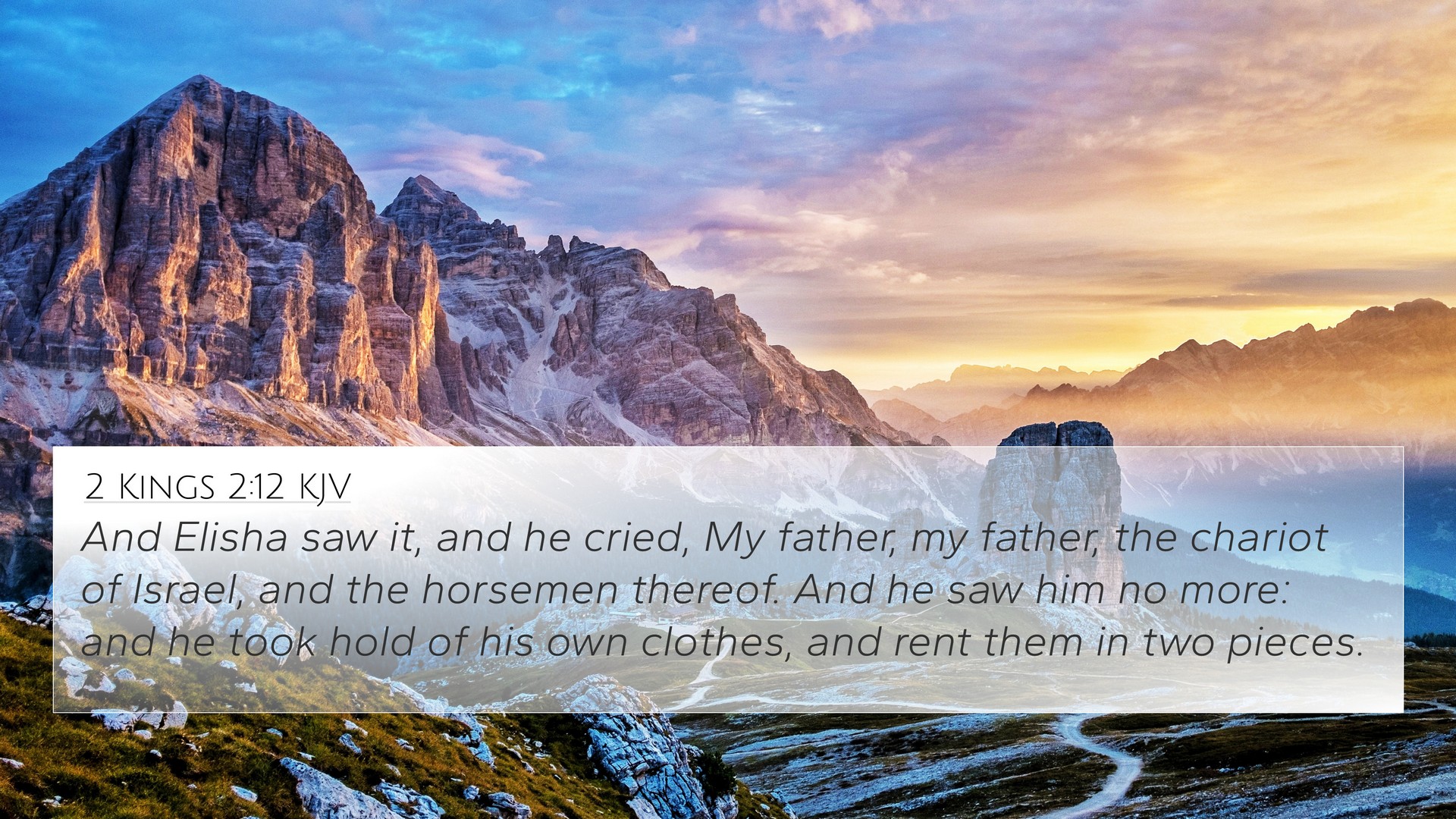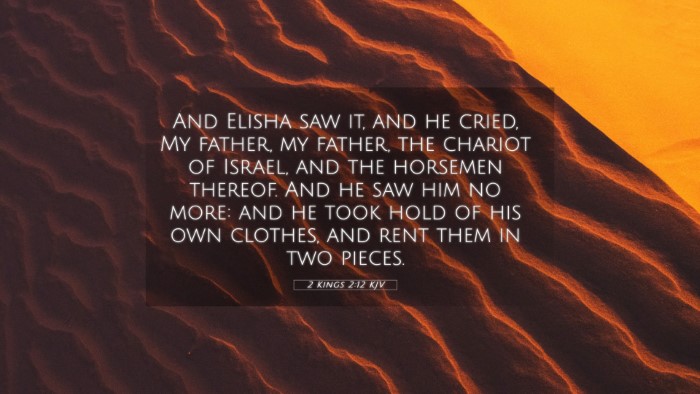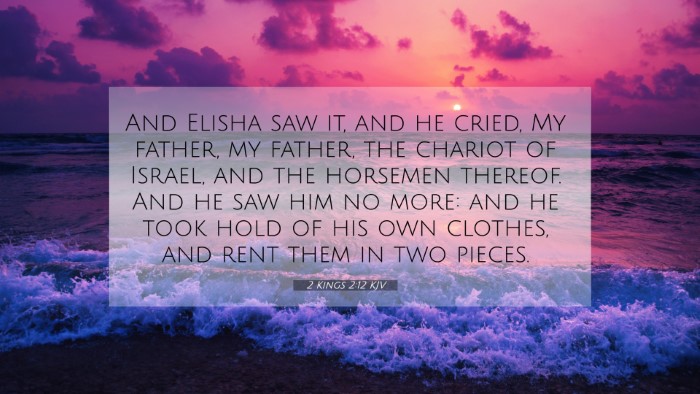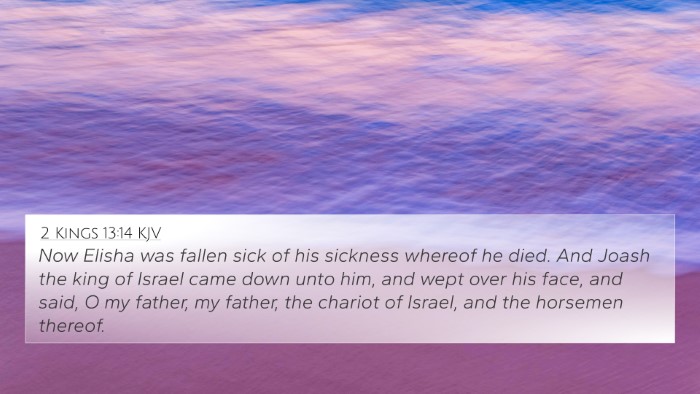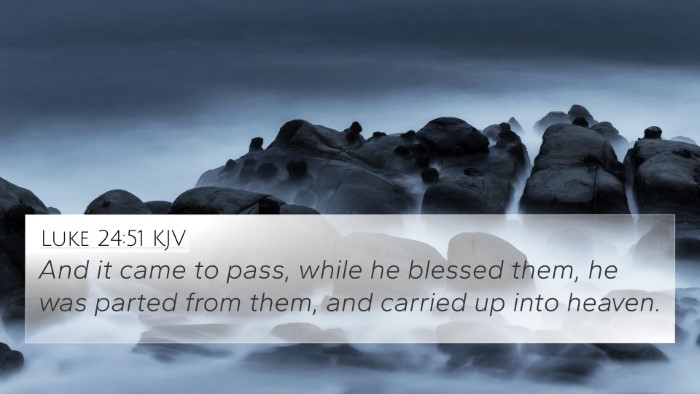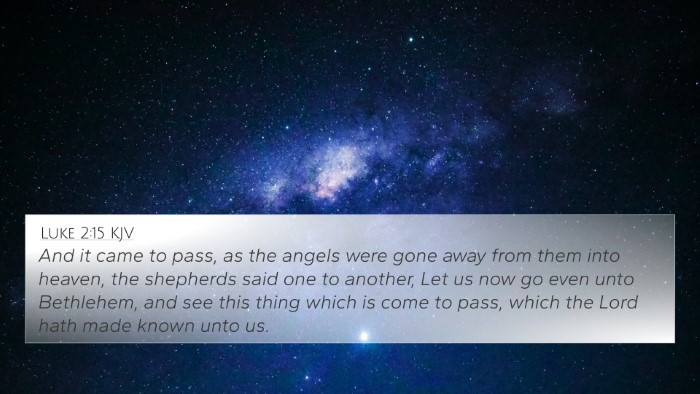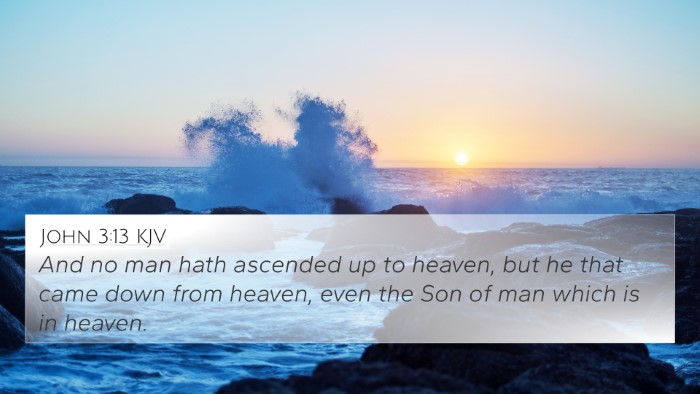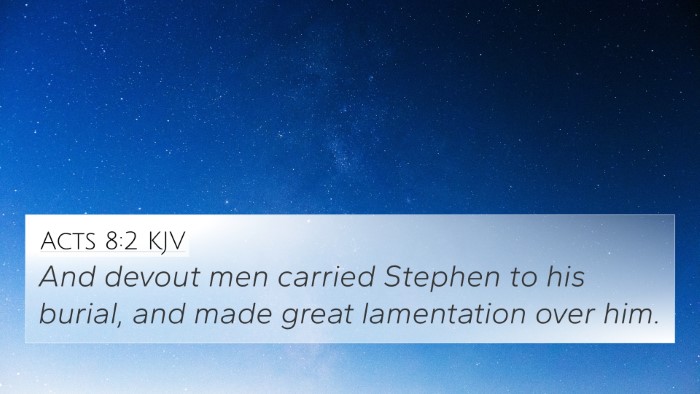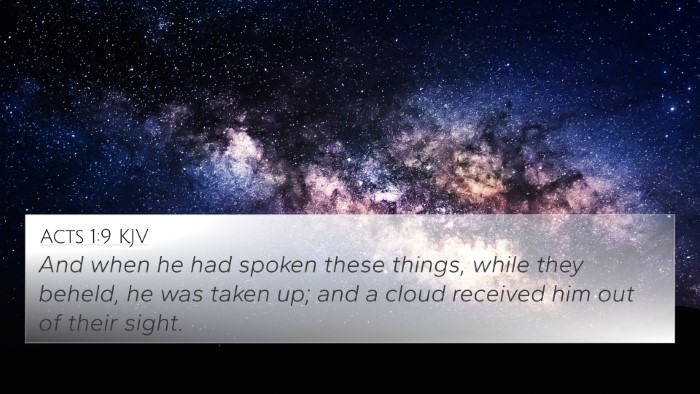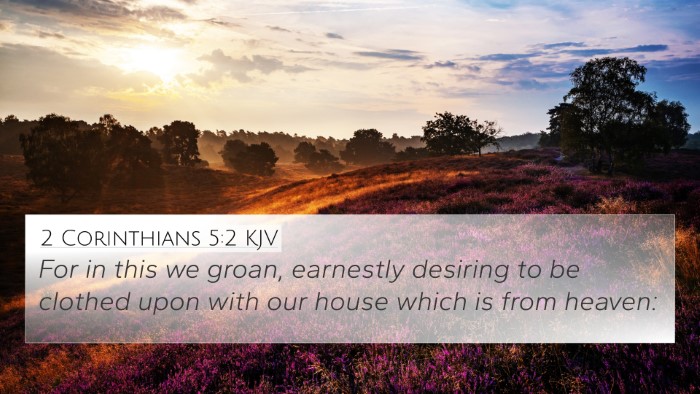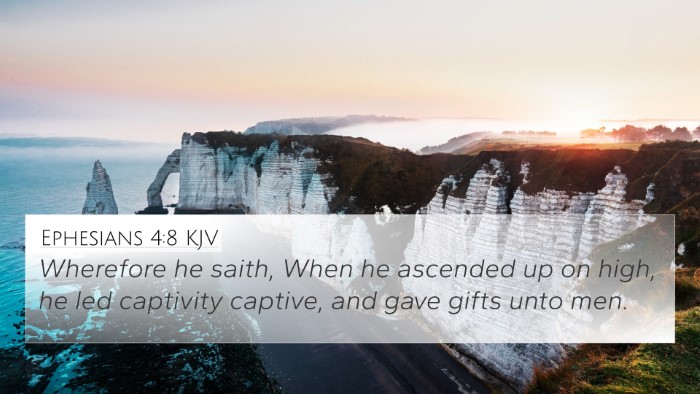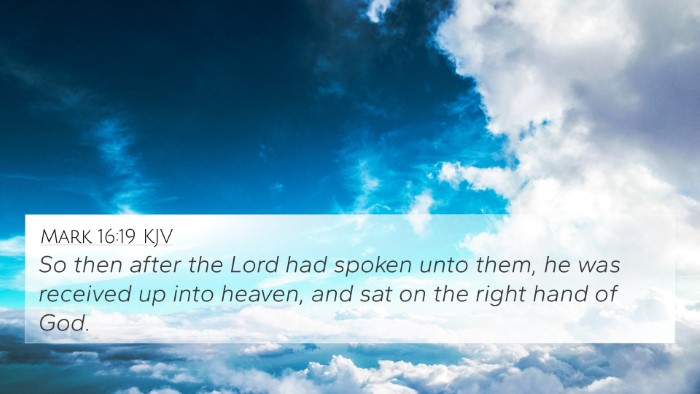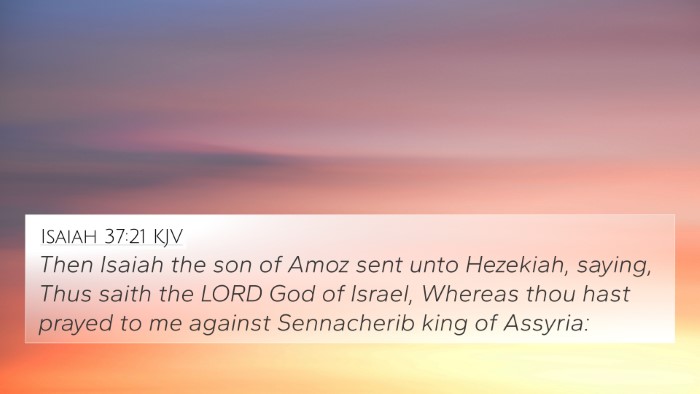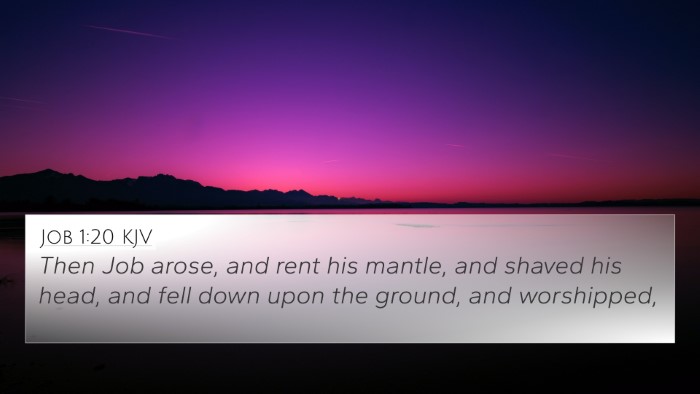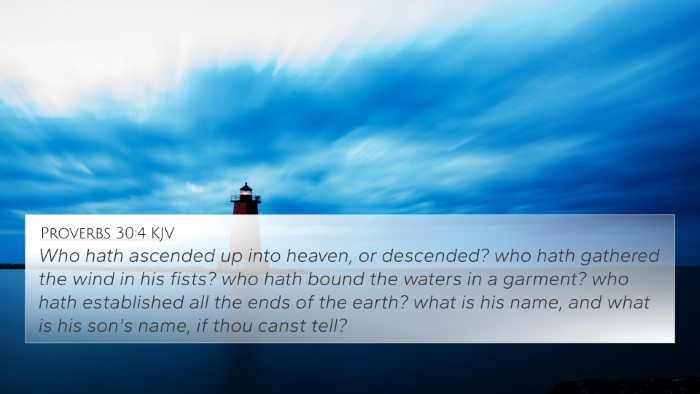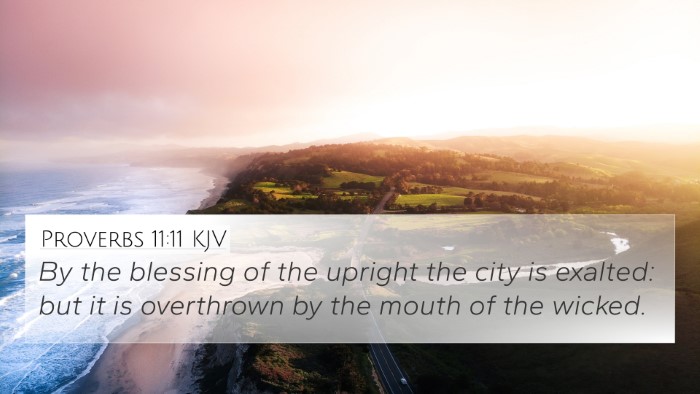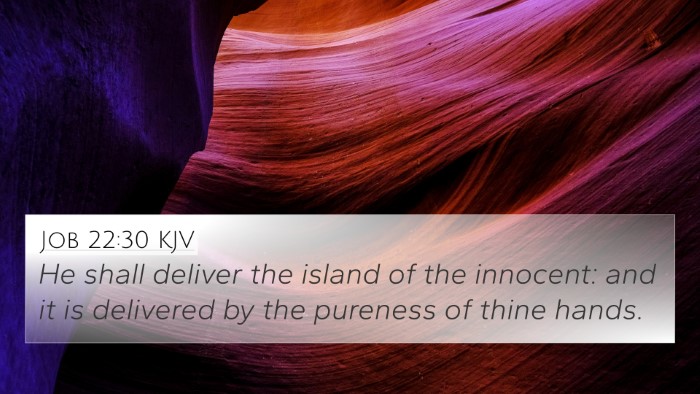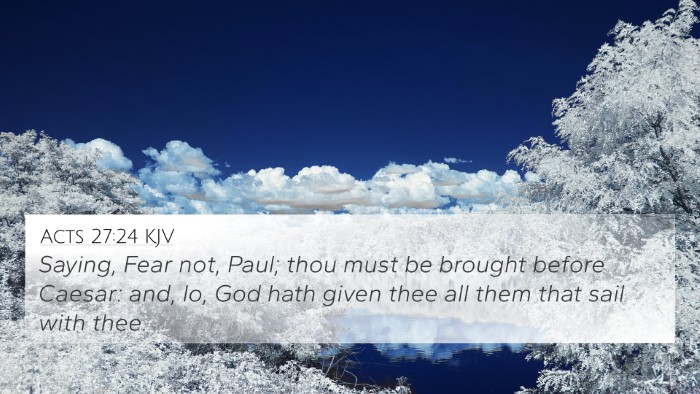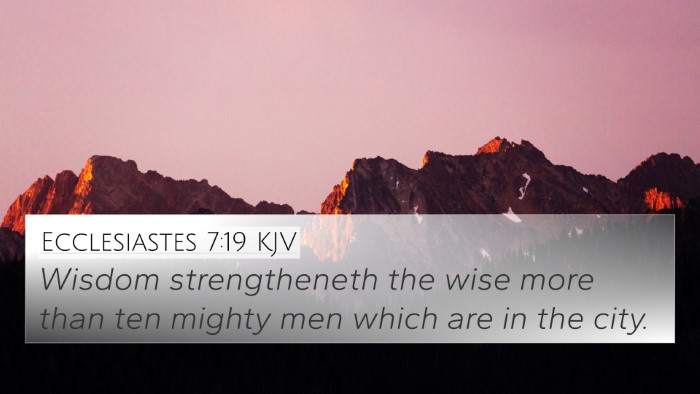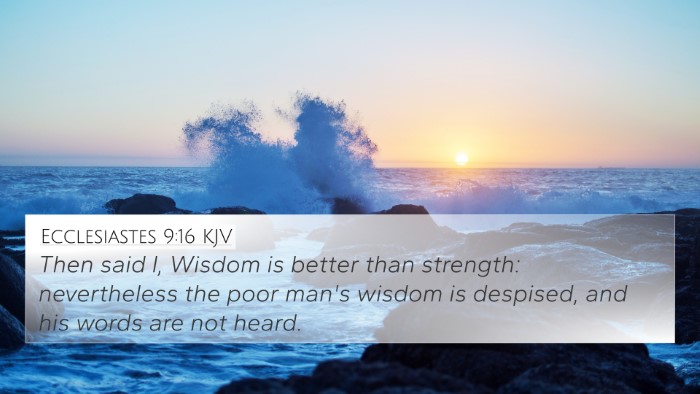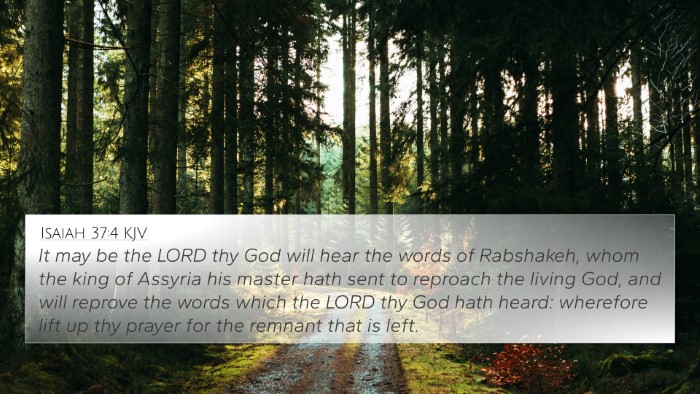Understanding 2 Kings 2:12: A Combined Commentary Analysis
Bible Verse: 2 Kings 2:12
“And Elisha saw it, and he cried, My father, my father, the chariot of Israel, and the horsemen thereof. And he saw him no more: and he took hold of his own clothes, and rent them in two pieces.”
Overview of the Verse
This passage narrates a pivotal moment in the lives of Elisha and Elijah as the latter is taken up to heaven in a whirlwind. It encapsulates themes of mentorship, grief, and the spiritual transfer of authority. Elisha's cry reflects deep emotional pain and recognition of Elijah's role in his life as a father figure.
Thematic Analysis
From the insights of various public domain commentaries, the following main themes emerge:
- Mentorship and Succession: Elisha’s relationship with Elijah signifies the importance of spiritual fathers in faith.
- Grief and Loss: The cry of "My father, my father" highlights the deep bond and the sorrow experienced at the separation.
- Spiritual Authority: The mention of "the chariot of Israel" symbolizes God's divine protection and leadership through His servants.
Connections with Other Bible Verses
This verse forms significant connections with several other biblical texts that highlight similar themes:
- 1 Kings 19:19: The calling of Elisha by Elijah reinforces the notion of divine purpose and continuity.
- Matthew 22:32: Jesus references the living nature of God, echoing the eternal connection between the faithful.
- 2 Corinthians 5:17: The transformation in Christ parallels Elisha's departure from former servitude to prophetic leadership.
- Hebrews 11:5: Elijah’s ascension is seen as a testament to faith, showcasing God's power over death.
- 1 Samuel 15:35: Like Samuel's mourning over Saul, Elisha mourns the departure of his mentor.
- Acts 1:9: Jesus' ascension parallels Elijah's, signifying the importance of divine missions.
- John 14:12: The promise of greater works points to the potential of Elisha's ministry post-Elijah.
Comprehensive Insights from Commentaries
Matthew Henry: Henry emphasizes the emotional intensity of Elisha's exclamation. It signifies the amalgamation of lament and admiration, portraying Elisha as a devoted disciple who deeply feels the void left by Elijah.
Albert Barnes: Barnes expands on the symbolism of the chariot and horsemen, illustrating how Elijah’s divine transport showcases God’s active involvement in Israel’s deliverance. This further entrenches the idea that Elijah was a protector of the nation.
Adam Clarke: Clarke notes the historical significance of this moment. He highlights that through the act of tearing his garments, Elisha not only expresses grief but also symbolizes a break from his previous life, embracing the prophetic mantle with seriousness and responsibility.
Practical Applications
The insights gathered from 2 Kings 2:12 encourage believers to reflect on their spiritual mentors. It prompts one to appreciate the lessons learned and the legacy of faith imparted by those who guide us in our spiritual journeys.
Exploring Cross-References
For those looking to deepen their understanding through cross-references, the following tools and methods may be helpful:
- Bible Cross-Reference Guide: Utilizing a guide can help identify thematic connections effectively.
- Tools for Bible Cross-Referencing: Software and apps designed for cross-referencing can streamline the process.
- Comparative Bible Verse Analysis: Engaging in studies that compare parallel verses enriches scriptural understanding.
Conclusion
2 Kings 2:12 is not merely a historical account but a divine narrative that encapsulates human emotion, spiritual authority, and mentorship. The verse serves as an invitation to explore deeper relational dynamics in scripture and fosters an understanding of the interconnectedness of biblical themes.
